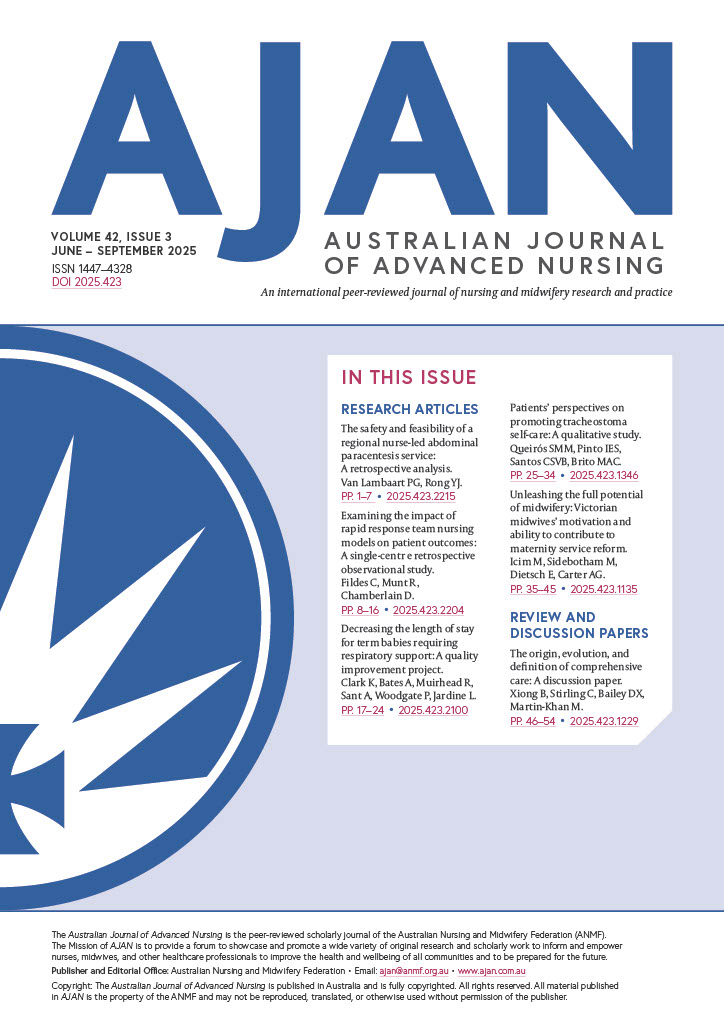Patients' perspectives on promoting tracheostoma self-care: a qualitative study
Main Article Content
Keywords
Qualitative content analysis, self-care, patients' perception, tracheostomy
Abstract
Objective: To explore patients’ perspective about promoting tracheostoma self-care.
Background: Promoting self-care is one of the main areas of intervention for nurses who care for patients undergoing tracheotomy/total laryngectomy. Self-care can improve autonomy, quality of life and reduce tracheostoma complications. To achieve this, interventions need to be evidence-based and sensitive to the patients’ needs and preferences. However, little is known about patients' experiences of learning to care for their tracheostoma and their preferences.
Study design and methods: A qualitative descriptive study was carried out through semi-structured, individual, and face-to-face interviews with patients who had undergone tracheotomy/total laryngectomy (n=17). Purposive sampling was performed with maximum variation. All interviews were audio-recorded and transcribed verbatim, and data were analysed using qualitative content analysis. The study complied with the Consolidated Criteria for Reporting Qualitative Research (COREQ).
Results: This study identified two main themes. The first was the experience of living with a tracheostoma. Participants recognised the implications of the tracheostoma in everyday life, the importance of tracheostoma awareness, critical moments, possible response patterns, and the personal, social, and health-related factors that can affect this experience. The second theme identified was the promotion of tracheostoma self-care. The participants mentioned the rebuilding of autonomy as the main objective, the thematic content that should be addressed by nurses before and after the surgery, the different strategies and resources that can be used, and what determines the appropriate time to intervene.
Conclusion: Despite the challenges of living with a tracheostoma, participants acknowledged the promotion of self-care as crucial for regaining autonomy. Nursing interventions that incorporate contents, methodologies, and implementation moments sensitive to the preferences, needs, and characteristics of each patient, which are maintained over time, appear to be the desired approach according to the participants.
Implications for research, policy, and practice: This study’s findings can help to design and implement nursing interventions to promote tracheostoma self-care that leads to better health outcomes.

